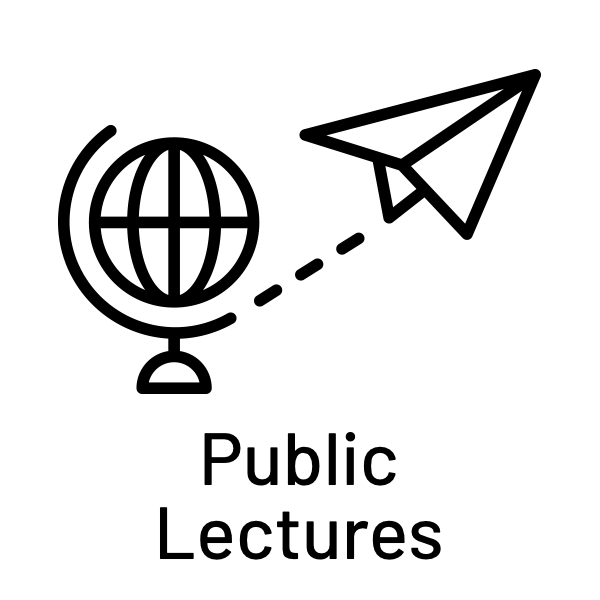
This is part of a series of blogposts documenting the CREATe Symposium 2019.
On 9 October 2019, Catherine Stihler, CEO of the Open Knowledge Foundation, gave the inaugural CREATE public lecture of 2019/2020, entitled ‘Reflections on the Making of Copyright Law’.
During her tenure as Member of the European Parliament (1999-2019), Catherine Stihler acted as Vice-Chair of the Internal Market Committee and Rapporteur for Article 13 (now Article 17) of the Copyright in the Digital Single Market Directive. From this unique position, Stihler shared her personal perspective on the legislative process leading to the (still) controversial provision which is Article 17.
Copyright and access to knowledge
Stihler began by recounting the fascinating tale of St Columba and the Isle of Iona, which unfolded what may have been one of the first copyright-related conflicts in History (here). While in a more distant past withholding unauthorised copies of the Gospels from a King may have culminated in the death of thousands, the tension between rights of ownership and access to knowledge which underpinned St Columba’s trajectory remains current.
Against this backdrop, Stihler went on to address EU copyright reform. In her view, the Article 17 debate encapsulates this ownership-access tension, which, today, translates into a fight for open knowledge in an open (rather than closed) society. In a highly contested, profoundly divisive issue such as this, people tend to take sides and often surrender to passion. Several interest and lobbying groups pressured EU legislators into adopting more stringent rules which were framed as favourable to artists and creators. Such efforts were nonetheless met with strong public reaction: 5 million of Europeans – a number reflecting the size of Scotland or a smaller EU Member State – signed an online petition strongly opposing the changes which were about to be made, with numerous protests and demonstrations taking place in Berlin and elsewhere.
The academic community also engaged, notably through IP research centres seeking to bring more facts and evidence to the Article 17 debate – something which Stihler understands to be crucial to EU policy making in this day and age. Particularly, Stihler drew attention to CREATe’s contribution through a briefing shared in the run up to the Plenary vote of 5 July 2018 (here), which supported her now famous speech at the European Parliament (here). Her positive experience shows there is space for more collaboration and direct engagement between academics and with policy makers. Although many had expected that vote to be lost, the report of the legal affairs committee (JURI) was rejected, leading to extended negotiations within the European Parliament and then in the trilogue process with Council and Commission to the current version of the directive.
Public engagement, participation and discourse
For future copyright reform, Stihler believes that higher levels of public engagement (and possibly, influence) in EU decision-making could be achieved through three key elements: presence, participation and partnership. An increased presence should be accompanied by a more transparent and open lobbying system in Brussels, perhaps drawing inspiration from the register-based system adopted by the Scottish Parliament. Requiring that lobbying activity is registered, with all contacts initiated with legislators being subsequently reported to the register, as it happens in Scotland, may be onerous, but it still better than no system at all. Higher levels of participation would also contribute to visibility, ensuring that the public plays a more active role within the EU institutions. Perhaps more significantly, partnerships should be encouraged. According to Stihler, some interest groups were more organised than others, successfully framing their discourse around keywords such as value gap and authors’ rights. Those defending a more open approach to copyright and access to knowledge need to be resonant, to conceive a message that is easy to understand.
Article 17: unaddressed concerns and implementation
Following trilogue negotiations, Article 17 was approved in Parliament, with 6 Member States opposing: Italy, Luxemburg, Poland, Finland, and Sweden. Subsequently, Poland brought legal action before the Court of Justice (CJEU), challenging the content filtering obligations set out in Article 17(b) and (c), in fine (here).
Article 17, says Stihler, will have a far-reaching, negative impact on freedom of speech and expression by introducing control filters restricting the sharing of knowledge. Millions of people are to be affected in small ways that we may not have conceived yet. If anything, filtering will make it increasingly difficult to discover content across borders, with limited control over the quality (or legality) of information being uploaded or shared online. Automated systems are likely to be deployed, regardless of the known inability of current technology to grapple with issues of copyright ownership and defences. By creating ineffective rules that can only be achieved by a small number of online platforms, Article 17 will ultimately favour a small number of tech giants, that is, those companies that interest groups pushing for the provision were arguably opposing to.

From a broader perspective, Stihler argues, Article 17 may run counter to other EU policies, such as the Horizon 2020 program. Seeking to ensure that the European Union can capitalise on the knowledge that it produces, Horizon’s budget is directing more than 100 billion euros to address Europe’s ‘innovation deficit’. However, restrictions on the sharing of that knowledge will mean that quality information is increasingly moved behind paywalls or geoblocked, limiting access to those having the resources or prior knowledge to locate and access it.
We should instead be favouring a more open approach to knowledge, which would lead us to an open society. According to Stihler, the European Union is likely to set rules that may become global standards. There is still much work to be done now during the implementation of Article 17 to achieve more clarity and coherence at the Member States level (see DSM implementation here). We will need to keep interested and engaged.

